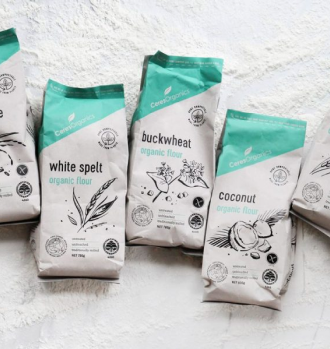
Soy is quite the controversial food. Is eating soy bad for you? Depending on who you ask and the research, there are good arguments for and against soy’s nutritional benefits. You know what soy beans are – the green, immature ones are what you get at Japanese restaurants called edamame. Foods made from soy that you’re probably familiar with are tofu, tempeh and soy milk. These are pretty mainstream now.
Nutrition
Since way back, soybeans have been recognised as a good source of plant protein. Soy is about 41 percent protein, and interestingly, soy protein quality ranks up there with milk, beef and egg. Turns out soybeans are good for your gut health too. They contain fibres and starches that act as prebiotics, promoting the growth of healthy gut bacteria. Soybeans also contain a ton of vitamins and minerals. You’ll get large amounts of manganese, selenium, copper, potassium, phosphorus, magnesium, iron, calcium, B vitamins and vitamin K per 100 grams of mature, whole soybeans. In a study that saw Americans switch out meat and dairy for soy, researchers found that soy consumption resulted in significantly improved intake of folate and vitamin K; larger amounts of calcium, magnesium and iron; and 4 additional grams of fibre per day. Not surprisingly, cholesterol consumption and saturated fat intake was reduced. So now science has determined soy is nutritious. Next step obviously was to figure out if it could prevent cancer, or cause cancer. Studies have provided some mixed results. And on this point, it is important to understand that soy also contains phytoestrogens and anti-nutrients.
Look to the East
In Eastern countries like China, Japan and Korea, soybeans are typically consumed as whole foods. The thing is… these populations usually consume fermented soy products like natto, miso and tempeh. So we’re not talking about Tofurky or some other highly processed products here. Also worth noting is that soy is always eaten in small quantities, as a condiment in the diet and not as a main staple food. Even Dr. Daniel, who wrote about the potential dangers of excessive soy consumption, has made it clear that soy food intake, similar to that of Asian cultures, is healthy and doesn’t pose dangers. So, soy products that had become questionable were the highly processed variety, very different to whole food soybeans. Dr. Daniel recommends people stick to fermented soy products like miso, tempeh, natto and soy sauce because fermentation can deactivate specific anti-nutrients.
Not all soy is GMO
Some of the first soybean crops date back to 11th century B.C, native to East Asia and considered to be a good source of nutrition. It wasn’t until the 1700s that soybeans made it to Europe; and then later in 1765, to the United States where about 55 percent of soy is now grown. Over 90% of soy produced in the United States is genetically modified, meaning they contain genetically modified organisms (GMOs). The United States produces about half the world’s soy crops, and these crops are sprayed with the herbicide Roundup. While no genetically modified seeds have been approved for release into the New Zealand environment, foods imported may contain GMOs. As of February 2004, Food Standards Australia New Zealand approved GMO ingredients derived from GMO crops such as corn, canola, cotton, soybean, potatoes and sugarbeet. It is therefore important to choose Certified Organic soy, as it is grown without chemicals and is GMO free. Buying organic soy products like tofu, tempeh and soybeans is the only way you can be sure you are not consuming GMOs. Besides the GMO issue, pesticides pollute and damage soils, waterways and ecosystems. Pesticides can also have both acute effects and chronic adverse effects on the health of those exposed to them. By choosing organic soy, you’re eating better for your own health and wellbeing, the health and wellbeing of others and supporting a more sustainable environment.
Soy and hormones
Does soy cause man boobs? This is a serious issue which stems from soy’s phytoestrogens – compounds that mimic estrogen in the body. There’s conflicting research on the effects of phytoestrogens. In men soy has been shown to lower testosterone levels, slow down sperm, lower sperm counts, and cause erectile disfunction. But, the guy would have to be eating a lot of soy! While these studies show that soy-derived foods and soy phytoestrogens were linked to lower sperm concentrations, the research did not find a negative relationship between soy and sperm mobility or sperm quality, both of which are key fertility factors. So maybe it’s not that big of a deal after all. Soy isoflavones have been found to increase the multiplication of breast cells and disrupt normal menstrual cycles. However with all the concern around soy and hormonal changes, don’t forget other dietary factors can have a major impact on hormone levels. Other studies have stated that “The Western diet (characterised by dairy products and meat) causes a trend of increasing levels of estrogen.” So soy is getting slammed for hormonal issues, yet research shows that dairy and meat can have a significant impact on hormone levels too. Take estrogen – the major sources of estrogen for most people are milk and dairy. Milk is responsible, at least in part, for some male reproductive disorders.







